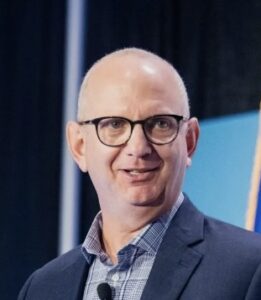Who is a member?
Our members are the local governments of Massachusetts and their elected and appointed leadership.

Matt Lehrman
When Matt Lehrman gives his Saturday keynote address at Connect 351 in January, he will likely ask municipal leaders two big questions: How do your residents feel when they emerge from civic engagement? And how do you actually want them to feel?
Lehrman’s talk, “From Conflict to Conversation,” will probe how local leaders can build consensus around important decisions and foster inclusion through meaningful dialogue. A nationally recognized speaker, facilitator and podcast host, the Arizona-based Lehrman has extensive experience working with local governments across the country, and the MMA is the 25th state municipal league that has invited him to give a keynote address. He will address the MMA’s annual conference on Jan. 25.
Lehrman works to make leaders more comfortable with disagreement, which he said is both natural and necessary. Too often, he said, leaders want to push quickly through painful issues, but the road from conflict to consensus runs through what he calls “courageous conversations” — meaningful discussions that allow constituents to engage not just with their leaders, but with each other.
“If you really want people to feel connected and respected and heard, then you have to do something in the process of engagement,” Lehrman told the MMA. “We have to slow down the process, make it possible for people to engage, to learn about it, to feel welcome, to have meaningful input, and to bring a lot of people into an actual deliberation, and not speed through and get to the final answer right away.”
With a bachelor’s degree in government and sociology from Oberlin College, Lehrman spent much of his early career in banking and the arts before focusing on government. For 17 years, he was an arts and culture administrator, serving as vice president of marketing and communications for Scottsdale Arts in Arizona before founding the Alliance for Audience, an organization that promoted arts and culture in Arizona for almost a decade.
In 2012, Lehrman co-founded Social Prosperity Partners to work with municipal, civic and nonprofit organizations to improve public engagement, build consensus and undertake strategic planning. He has also been a faculty associate and guest lecturer at Arizona State University and a speaker for Vistage Worldwide, a business advisory and executive coaching organization.
In February, Lehrman launched the “Community Catalysts” podcast, where he interviews elected and appointed municipal officials, civic and nonprofit leaders, and businesspeople who have worked to improve their communities.
Lehrman said the local officials he engages with in his work — regardless of their background, or whether they’re elected, appointed or hired — have one thing in common: “The only reason anyone does this is because they want to make their community better. The intentions are wonderful.”
Despite their dedication and intentions, however, the increase in public discord, political divisions and social media vitriol have left many public officials feeling deflated. Lehrman said municipal leaders frequently ask him one question: How can officials engage with colleagues who are set in their ways and who express little interest in dialogue? In response, his presentation has evolved over the past five or six years.
“I’ve been willing to speak more candidly than ever about what it takes to convince someone who is angry or obstinate, what it takes to to deal with that,” he said. “Because that’s what’s been growing — the obstinance, the unwillingness to reason — and that’s really the number-one question.”
At Connect 351, Lehrman plans to focus on the ability of municipal officials, boards and councils to innovate and create forums that allow people to gather and talk about their priorities, “so that even if the ultimate decision doesn’t go their way, they know that they were a part of the conversation, they understand the facts, the rationale and why it got decided in that way.”
Later that day, Lehrman will facilitate a follow-up session, called “Let’s Talk: From Conflict to Conversation,” for municipal leaders who want to share challenges they’re facing, the goals they want to pursue, and what they’re doing to move from conflict to conversation in their communities.
“I’m going to try to make sure that everyone leaves with something pragmatic that they can do for themselves in their own community,” he said.